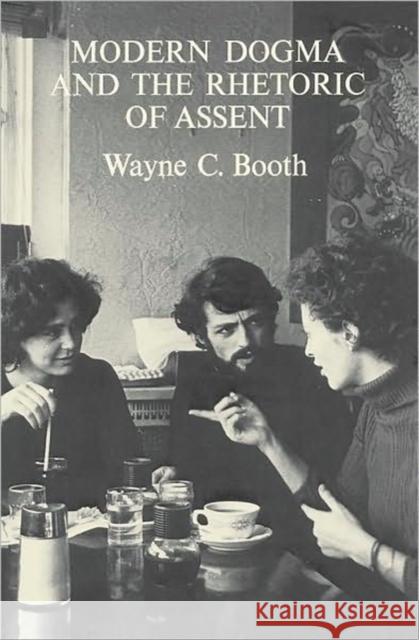Modern Dogma and the Rhetoric of Assent » książka
Modern Dogma and the Rhetoric of Assent
ISBN-13: 9780226065724 / Angielski / Miękka / 1974 / 254 str.
When should I change my mind? What can I believe and what must I doubt? In this new "philosophy of good reasons" Wayne C. Booth exposes five dogmas of modernism that have too often inhibited efforts to answer these questions. Modern dogmas teach that "you cannot reason about values" and that "the job of thought is to doubt whatever can be doubted," and they leave those who accept them crippled in their efforts to think and talk together about whatever concerns them most. They have willed upon us a "befouled rhetorical climate" in which people are driven to two self-destructive extremes defenders of reason becoming confined to ever narrower notions of logical or experimental proof and defenders of "values" becoming more and more irresponsible in trying to defend the heart, the gut, or the gonads.
Booth traces the consequences of modernist assumptions through a wide range of inquiry and action: in politics, art, music, literature, and in personal efforts to find "identity" or a "self." In casting doubt on systematic doubt, the author finds that the dogmas are being questioned in almost every modern discipline. Suggesting that they be replaced with a rhetoric of "systematic assent," Booth discovers a vast, neglected reservoir of "good reasons" many of them known to classical students of rhetoric, some still to be explored. These "good reasons" are here restored to intellectual respectability, suggesting the possibility of widespread new inquiry, in all fields, into the question, "When "should" I change my mind?"
"











